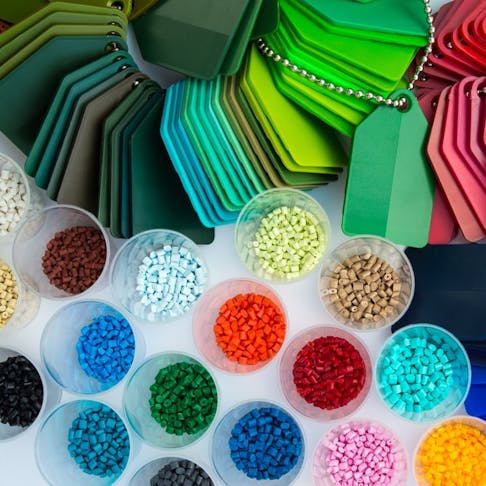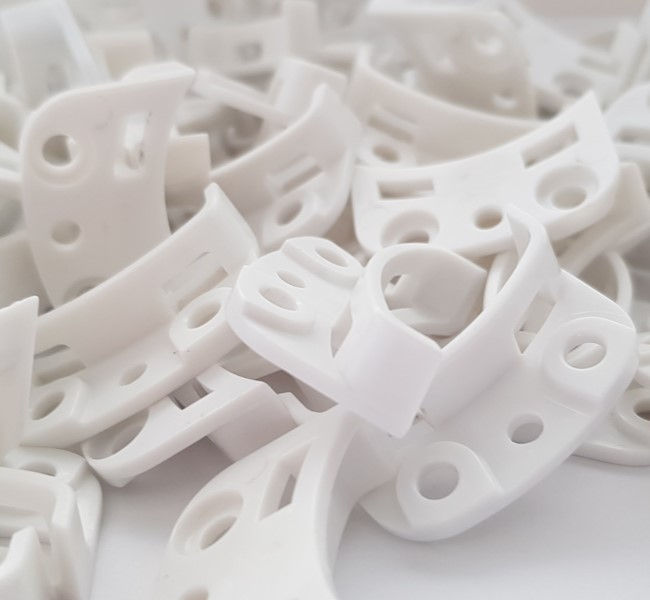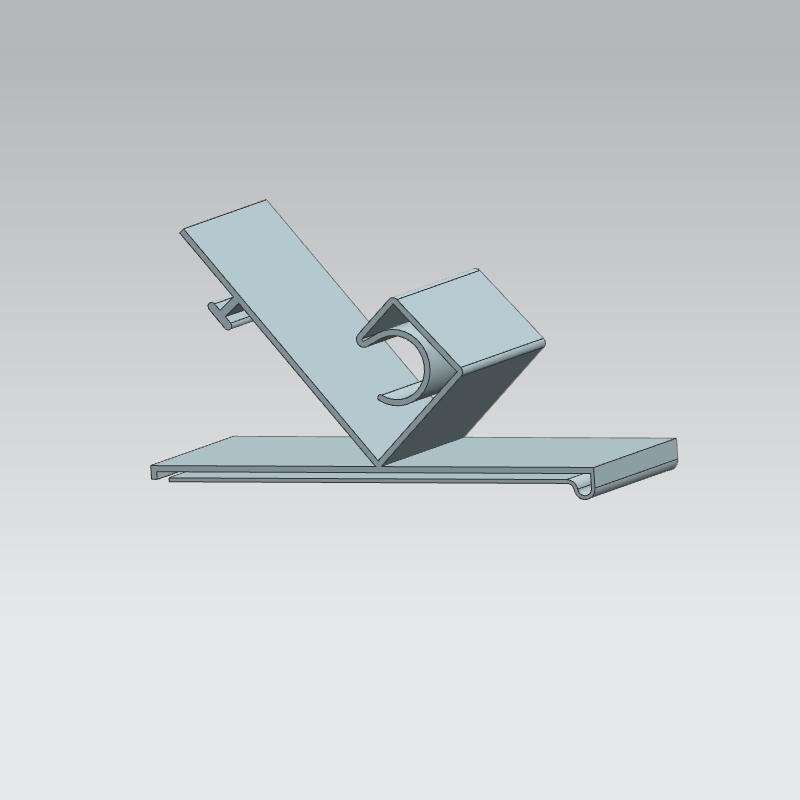Various polymers are commonly used in extrusion moulding, including thermoplastics like Polyethylene, Polypropylene, and PVC, thermosetting polymers such as Epoxy and Phenolic resins, as well as elastomers like natural and synthetic rubber.

Thermoplastic Polymers for Extrusion Moulding
Thermoplastic polymers stand out for their ability to be melted and re-molded multiple times, making them ideal for extrusion moulding processes. In this section, we will focus on the most commonly used thermoplastic polymers, including their properties, applications, and processing conditions.
Polyethylene (PE)
Polyethylene, commonly referred to as PE, ranks as the most widely used plastic. It has various forms such as High-Density Polyethylene (HDPE) and Low-Density Polyethylene (LDPE).
- Properties
- High chemical resistance
- Excellent moisture barrier
- Low cost
- Applications
- Water pipes
- Food packaging
- Garden furniture
- Processing Conditions
- Melt Temperature: 180-220°C
- Mold Temperature: 20-60°C
Polypropylene (PP)
Polypropylene is another popular thermoplastic polymer, valued for its lightweight and high-temperature resistance characteristics.
- Properties
- High tensile strength
- Good thermal stability
- Chemical resistance
- Applications
- Automotive components
- Textile fibers
- Food containers
- Processing Conditions
- Melt Temperature: 200-275°C
- Mold Temperature: 40-80°C
Polyvinyl Chloride (PVC)
Polyvinyl Chloride, commonly known as PVC, has a wide range of applications and is known for its durability and cost-effectiveness.
- Properties
- Good flame retardancy
- Excellent electrical insulation
- High impact resistance
- Applications
- Building and construction materials
- Electrical cables
- Medical devices
- Processing Conditions
- Melt Temperature: 160-210°C
- Mold Temperature: 30-60°C
Thermosetting Polymers for Extrusion Moulding
Thermosetting polymers differ from thermoplastics in that they undergo a chemical change when they are heated, becoming rigid and maintaining their shape even under extreme temperatures. Here, we focus on two key types of thermosetting polymers used in extrusion moulding: epoxy resins and phenolic resins.
Epoxy Resins
Epoxy resins have a unique ability to adhere to a variety of surfaces, which makes them highly desirable for certain applications.
- Properties
- Excellent adhesion
- High chemical resistance
- Superior electrical insulation properties
- Applications
- Adhesives and sealants
- Industrial tooling
- Electronics encapsulation
- Processing Conditions
- Initial Temperature: 50-80°C
- Curing Temperature: 150-200°C

Phenolic Resins
Phenolic resins find extensive use in the manufacturing of laminates and insulation materials due to their excellent thermal stability.
- Properties
- Heat resistance
- High tensile strength
- Flame retardancy
- Applications
- Electrical insulations
- Industrial laminates
- Brake linings
- Processing Conditions
- Initial Temperature: 60-100°C
- Curing Temperature: 160-220°C
Elastomers for Extrusion Moulding
Elastomers display rubber-like properties that make them extremely flexible and durable. In the extrusion moulding industry, natural rubber and synthetic rubber are two of the most commonly used elastomers.
Natural Rubber
Natural rubber offers an array of properties that are desirable in many industrial applications.
- Properties
- High tensile strength
- Excellent rebound resilience
- Tear resistance
- Applications
- Automotive tires
- Belts and hoses
- Footwear
- Processing Conditions
- Melt Temperature: 70-100°C
- Mold Temperature: 20-50°C

Synthetic Rubber
- Properties
- Oil and chemical resistance
- Heat stability
- Versatility in formulations
- Applications
- Seals and O-rings
- Automotive parts
- Roofing materials
- Processing Conditions
- Melt Temperature: 80-120°C
- Mold Temperature: 30-70°C
Synthetic Rubber
Derived from petroleum-based chemicals, synthetic rubber can be engineered to exhibit specific properties.
- Properties
- Oil and fuel resistance
- High thermal stability
- Weather resistance
- Applications
- Gaskets
- Hoses
- Weatherstripping
- Processing Conditions
- Melt Temperature: 100-200°C
- Mold Temperature: 50-100°C

Specialty Polymers for Extrusion Moulding
Specialty polymers such as Polyetheretherketone (PEEK) and Polytetrafluoroethylene (PTFE) are used for very specific applications that require high performance in extreme conditions.
Polyetheretherketone (PEEK)
PEEK is a high-performance polymer that offers a unique combination of properties.
- Properties
- Exceptional mechanical strength
- Excellent chemical resistance
- High-temperature stability
- Applications
- Aerospace components
- Medical implants
- High-performance gears
- Processing Conditions
- Melt Temperature: 360-400°C
- Mold Temperature: 140-160°C
Polytetrafluoroethylene (PTFE)
Commonly known as Teflon, PTFE stands out for its non-reactive nature and high melting point.
- Properties
- Non-reactive
- Low coefficient of friction
- High melting point
- Applications
- Non-stick cookware
- Electrical insulation
- Gaskets and seals
- Processing Conditions
- Melt Temperature: 350-380°C
- Mold Temperature: 100-130°C
Factors Influencing Polymer Choice
Choosing the right polymer for extrusion moulding involves a number of considerations, such as the temperature resistance, mechanical strength, and cost of the material. In this section, we discuss these factors in detail, highlighting how they can affect the suitability of a polymer for specific applications.
Temperature Resistance
Temperature resistance is crucial for materials used in environments that are subject to varying or extreme temperatures.
- Why It Matters
- Ensures material stability under different temperature conditions
- Determines the lifespan of the product
- Examples
- PEEK for high-temperature applications
- Polyethylene for moderate temperature conditions
Mechanical Strength
Mechanical strength is another vital factor, particularly for products that will bear loads or experience physical stresses.
- Why It Matters
- Affects the durability and quality of the end product
- Influences the choice of polymer for structural components
- Examples
- Polycarbonate for impact-resistant applications
- Polypropylene for products requiring high tensile strength
Cost
Cost often becomes the decisive factor, especially when the other requirements have been met.
- Why It Matters
- Directly impacts the profitability of the manufacturing process
- Influences consumer choice and market penetration
- Examples
- Polyethylene as a cost-effective option for packaging
- Epoxy resins for high-end, specialized products where cost is secondary to performance




